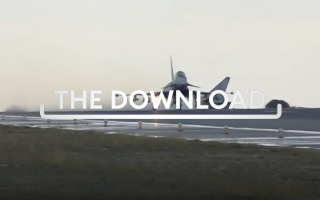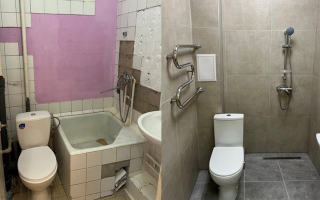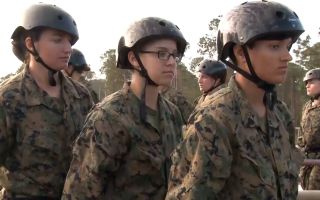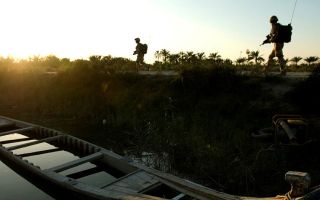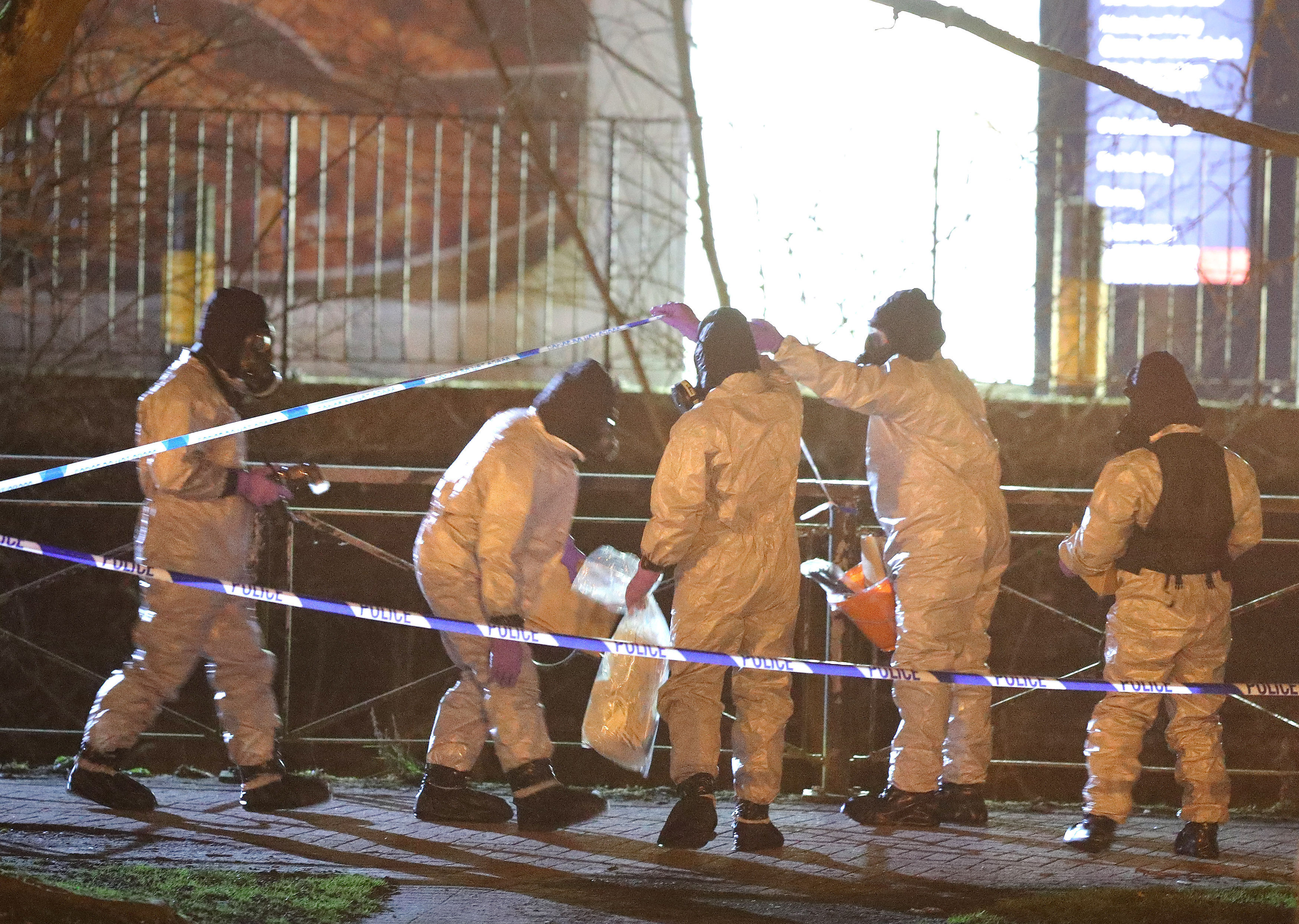
Salisbury Poisoning: Defence Secretary Says World Entered "New Era Of Warfare"

The Defence Secretary has said the world has "entered a new era of warfare" and labelled Russian president Vladimir Putin's behaviour "malign".
Gavin Williamson called the attack on Sergei and Yulia Skripal in Salisbury a "cold-blooded chemical attack" and said the Kremlin's response has been to "unleash a tidal wave of smears, lies and mockery".
Writing in the Sunday Telegraph, Mr Williamson said the world was becoming a "darker, more dangerous place" citing conflicts in Syria and Yemen and tensions with North Korea.
He added: "Then there is President Putin. He is using more hybrid capabilities to subvert, undermine, and influence countries around the world.
"If we were in any doubt of the danger posed by Moscow, we only have to look at events in Salisbury, where our Armed Forces, including the RAF, have been responding to a cold-blooded chemical attack.
"This was an illegal and contemptuous use of force against our country by the Russian State, endangering innocent lives."
It follows the Russian Embassy issuing a demand to the British authorities to know why it has been "denied consular access" to the Skripals.
The embassy published a list of 14 questions on Saturday over the poisoning of Sergei and Yulia Skripal in Salisbury.
The first question on the list read: "Why has Russia been denied consular access to the two Russian nationals, Sergei and Yulia Skripal, that have become crime victims in the British territory?"
It also included demands to know what treatment the pair were given and queried France's "involvement" in the investigation and asked if the Novichok could have been "researched, developed or produced in the UK".
The UK Foreign Office has said it is considering a request from Russia to see Yulia Skripal over the Salisbury poisoning.
An FCO spokeswoman said: "We are considering requests for consular access in line with our obligations under international and domestic law, including the rights and wishes of Yulia Skripal."
The Russian embassy in London tweeted on Friday that they "insist on the right to see her".
It posted: "Good news as Yulia Skripal is reported as recovering well.
"We insist on the right to see her, in accordance with the 1968 Consular Convention."
On Friday, the Russian foreign ministry ordered Britain to reduce the number of diplomats in Moscow down to the same amount that Russia has in London as the row over the attempted assassination of a Russian spy in Salisbury continues.
The UK expelled 23 Russian diplomats after Sergei Skripal, 66, and his daughter Yulia were exposed to the nerve agent Novichok.
A number of British allies also chose to eject Russian diplomats in a show of solidarity.
So far, more than 150 Russian diplomats have been ordered to return home by countries including the US, Germany, France and Canada.
Russian foreign minister Sergei Lavrov said Moscow would retaliate by expelling the same number of diplomats that each country had ejected.
The ministry said it summoned the British ambassador on Friday following the "provocative and unsubstantiated actions by Britain, which instigated the expulsion of Russian diplomats from various nations for no reason".
The British Government was given 30 days to reduce its number of diplomats in Russia - the exact number is not yet known.
A spokeswoman for the Foreign and Commonwealth Office said: "It's regrettable but in light of Russia's previous behaviour, we anticipated a response.
"However, this doesn't change the facts of the matter. The attempted assassination of two people on British soil, for which there is no alternative conclusion other than that the Russian state was culpable.
"Russia is in flagrant breach of international law and the Chemical Weapons Convention and actions by countries around the world have demonstrated the depth of international concern."
She said the FCO would not be commenting on the details of the meeting.
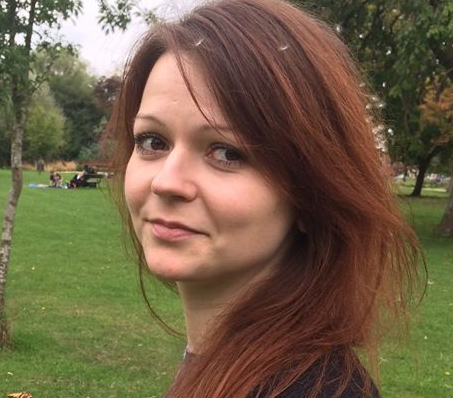
Yulia Skripal 'Conscious and Talking'
It was reported that the daughter of the Russian double agent had regained consciousness on Thursday.
Yulia Skripal was left critically ill when exposed to Novichok on March 4 in Salisbury, Wiltshire.
She is now said to be "improving rapidly". Her father, Sergei Skripal, remains in a critical but stable condition in hospital.
The BBC reports separate sources have verified Yulia is both conscious and talking.
The former Russian spy and his daughter first came into contact with the deadly chemical at his home, police said.
Detailed forensic testing revealed the highest concentration of the nerve agent was found on the front door of Mr Skripal's home in Christie Miller Road, in Salisbury.
The Metropolitan Police said traces of the nerve agent had been found at some of the other scenes detectives have been working at, but at lower concentrations.
Detectives will now focus their inquiries in and around the address, and specialist teams will step back from some of the other areas investigated over the past few weeks.
Deputy assistant Commissioner Dean Haydon, senior national co-ordinator for counter-terrorism policing, said: "At this point in our investigation, we believe the Skripals first came into contact with the nerve agent from their front door.
"We are therefore focusing much of our efforts in and around their address.
Those living in the Skripals' neighbourhood can expect to see officers carrying out searches as part of this, but I want to reassure them that the risk remains low and our searches are precautionary."
He thanked members of the public for their understanding, adding that officers will likely be in the neighbourhood for several months.
Britain has accused Russia of being behind the poisoning - allegations fiercely denied by Moscow.
In turn, Russia has suggested that UK intelligence officers may have been involved in the poisoning.
The Kremlin allegation came as Moscow faced increasing global isolation, with at least 26 countries expelling a total of more than 130 suspected spies.
Britain insists there is no plausible alternative explanation for the attack and has dismissed the series of suggestions emanating from Moscow as nonsense.
Around 250 counter-terrorism detectives continue to work around the clock on the investigation, which is expected to continue for months.
Officers are examining more than 5,000 hours of CCTV footage and 1,350 exhibits that have been seized, while 500 witnesses have been identified.




